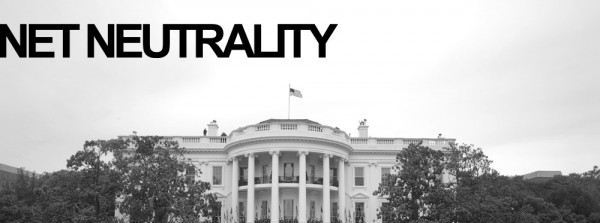The fight over net neutrality legislation currently being waged has many key players, of those, Google has on numerous occasions come out in support of net neutrality. On the other hand, Verizon, as well as other telecom companies, oppose the regulations. Now, in a surprising turn of events, both Google and Verizon have negotiated an agreement on broadband policy that undermines efforts from net neutrality advocates to keep the Internet fair.
Over the past several years, Google has been one of the main advocates for net neutrality on the business front. The company has played a significant role in helping the Federal Communications Commission (FCC) gather support for strong net neutrality policy. The reported dealings with Verizon, however, now undermine any efforts from FCC chairman Julius Genachowski to issue tough new regulations of the broadband industry. That said, the manner in which Genachowski has responded to the situation is weak to say the least. Though he has expressed support, meaning strong net neutrality legislation, his forcefulness in the negotiation process has been non-existent. Therefore, Google and Verizon have been able to set the agenda by having conversations before a plan from the FCC is released.
 Before Google and Verizon released their set of proposals, Google CEO Eric Schmidt had made an important distinction between Google’s and most other advocate’s views on net neutrality. According to Schmidt, net neutrality laws should not allow providers to prioritize websites based on economic advantage, however, content should be prioritized based on the type of service. This means that it’s ok for a provider to prioritize video content over email content, at the same time not prioritizing a specific video services over one another. Most net neutrality advocates would argue against such a view because there is no clear way to distinguish between necessary prioritization and that based on economic interests.
Before Google and Verizon released their set of proposals, Google CEO Eric Schmidt had made an important distinction between Google’s and most other advocate’s views on net neutrality. According to Schmidt, net neutrality laws should not allow providers to prioritize websites based on economic advantage, however, content should be prioritized based on the type of service. This means that it’s ok for a provider to prioritize video content over email content, at the same time not prioritizing a specific video services over one another. Most net neutrality advocates would argue against such a view because there is no clear way to distinguish between necessary prioritization and that based on economic interests.
Initially, there was much speculation as to whether Google was formulating its agreement based on this subtly distinct view of net neutrality or simply through the notion of tiered Internet. However, it is pretty clear that Google is leaning towards the latter, a position that isn’t even justifiable by the company’s initial nuanced view of net neutrality. In it’s public policy blog, Google has outlined the main aspects of its discussions with Verizon which are laid out as legislative framework for the FCC to follow. At first glance the goals stated seem true to the idea of a neutral Internet, but on closer inspection, they are riddled with obvious loopholes.
First, Google takes the position of supporting FCC enforceability of regular wire line networks, however, it does not support the same for wireless networks. Therefore, as smart phones and mobile Internet devices become prevalent, net neutrality will not be enforceable on them. Wireless providers would be free to control content as they wished. Take a device like the iPhone that is already subject to a fair amount of control by Apple. Now imagine your Apple device being subject to even more control as the Internet on it is no longer an unrestricted medium as well. That goes for Android based devices as well, which are grounded by many open source principles.
As a consolation, Google and Verizon have proposed transparency rules for wireless networks. Transparency rules, however, delegate little authority to even the FCC to respond to potential abuses. So, when we see bigger players paying for better services from carriers, consumers can watch it all play out in the open and be able to do nothing about it. Also, as the Internet shifts to mobile platforms, providers have more incentives to move key services to wireless networks, making it harder for regulatory agencies to have a say.
Probably one of the most dangerous propositions in Google and Verizon’s deal is the differentiation by both companies of “new services,” from “the public Internet.” In the spirit of so-called ‘innovation,’ the proposal would allow the creation of new broadband services to be differentiated from conventional online services. Essentially, service providers would be able to initiate contracts with other big companies to provide the next big product. Of course, Google has no self-interests in formulating such a proposal, right? Right.
What we have here is a classic case of big corporations scratching the backs of other big corporations. It’s pretty easy to see how Google might take advantage of such a proposal by partnering up with Verizon to monopolize certain services. Also, how do we know providers won’t take services that are free to the public now, and sell them later to consumers as “differentiated services?” For example, Youtube might be free for users now, but what’s going to stop Verizon from partnering up with Google to offer Youtube at a price, and under the pretense that it is a “differentiated service?” Therefore, this proposal is nothing but a wolf in sheep’s clothing in favor of prioritization.
The sheer size and weight that Google carries makes its dealings with Verizon worrisome. In some sense, Google is already a gatekeeper of the Internet. It’s search engine is the most widely used in the world and has helped the company amass vast amounts of data. The company’s financial strength is in many ways unparalleled giving it the ability to shape and influence public policy. The fact that it has been a key figure in the fight for net neutrality makes the company’s negotiations with Verizon an underhanded blow to net neutrality advocates and consumers.
Having Google on the side of the consumer is essential because ultimately, money speaks in Washington. That fact has been made more evident after Genachowski’s response to the deal. It is not up to the FCC and only a strong push from consumers and net neutrality advocates will get the agency to be more forceful with its position. If Google and Verizon are allowed to set the terms of the debate, however, we can kiss strong net neutrality legislation goodbye.
Related: Net Neutrality | New Rulings on DMCA
Link: Google And Verizon Deal | Save The Internet Campaign








